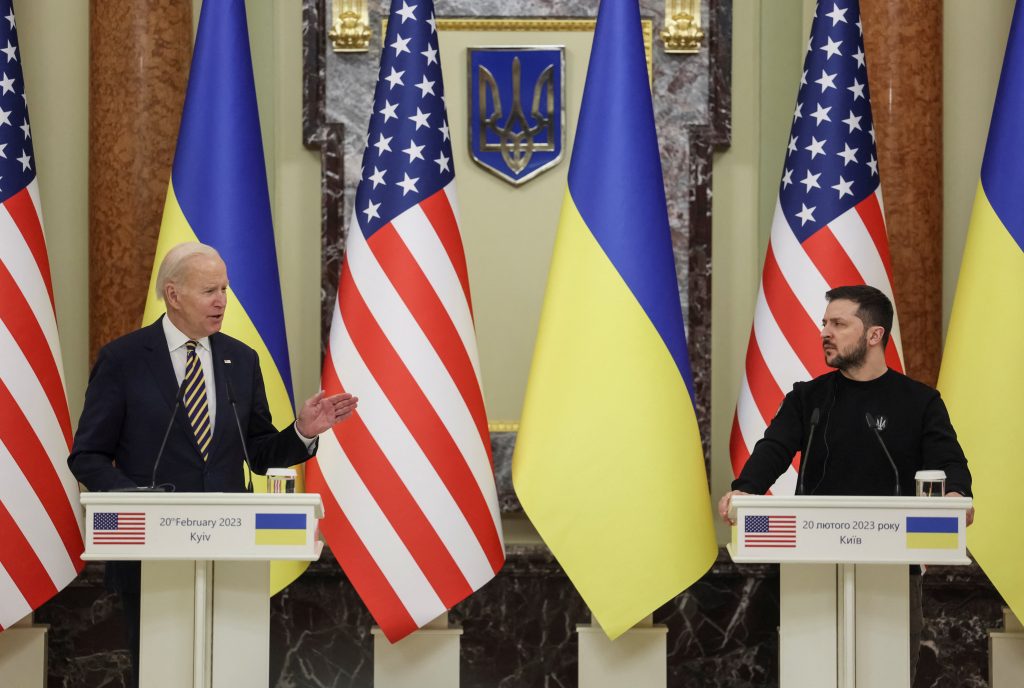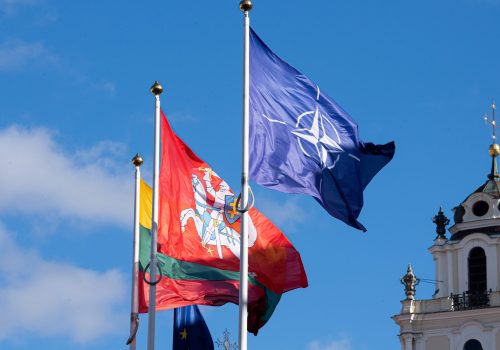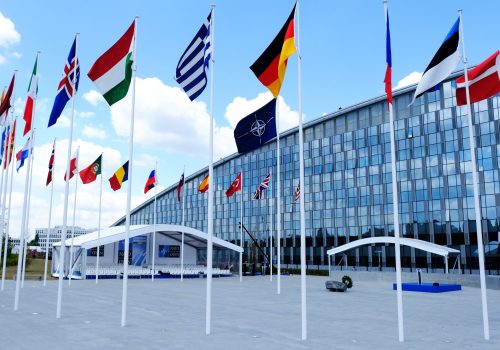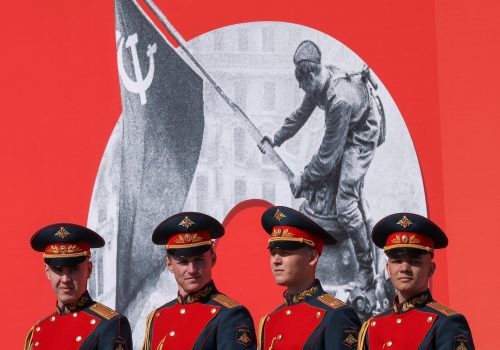With the war in Ukraine in its second year, much of the talk in Western capitals is about the Ukrainian counteroffensive that is likely to happen this spring. But a wrongheaded view of the war in those same capitals is undermining the counteroffensive before it can even begin. One of the reasons this war is still ongoing is the West’s extreme caution when it comes to resourcing the Ukrainian military with the weapons and munitions it needs to break through enemy lines and render the Russian army combat ineffective so that Ukrainian forces can liberate their country. Ukrainians have shown incredible patriotism, courage, and resilience. But the story of their fight is also that of the West’s failure to balance the risk of potential horizontal and vertical escalation in this conflict against the stakes in this war, not just for Europe but also for global stability and security. The West has given Ukraine enough to survive, but not enough to win. This strategy, though it seems reasonable today, will likely require the world to pay a much higher price in blood and treasure in the coming years.
Avoiding an all-out confrontation with Russia, a major nuclear power, is a rational approach. But going slow when it comes to providing Ukraine with weapons is simply a means of delaying the point of decision as the process of worldwide systemic unravelling proceeds to its denouement. The truth is that the international system Western leaders assumed would last for another generation is being dismantled by forces unleashed by the West and others. The system-transforming battle in Ukraine may soon yield to a larger system-transforming war. It is so because the United States and its allies have allowed—for the most part willfully through their own greed and myopia—their systemic adversaries, China and Russia, to accrue power that is now poised to offset what the collective West represents. Three decades of “globalization,” with the attendant transfer of Western technology to China and bumper-crop profits for Russia’s sales of energy, have undermined the United States’ relative power position worldwide to a point that China and Russia can venture to overthrow the international system the United States built after the Cold War.
This is not how successful wars are fought.
The fact that, despite repeated warnings and efforts by the United States and its allies to push intelligence into the public domain, they failed to deter Russia from invading Ukraine should serve as a warning of how much the world has changed. And the fact that the West continues to allow small powers to bear the brunt of Russia’s challenge to the foundational principles of the order it claims to defend, and that it hesitates to provide Ukraine with the requisite weapons and munitions to make it possible for Kyiv to win, speaks volumes about how unprepared the West is for what’s coming. In effect, with each ‘red line’ that Washington, Berlin, and Paris agonize over, they are only deterring themselves. This is not how successful wars are fought.
A strategic shift
The last three decades of campaigns in the Middle East, North Africa, and Afghanistan have warped the United States’ strategic culture. Its policy elites have become addicted to the idea of a ‘short war,’ and this has all but stripped Washington of a fundamental understanding that wars are about strategic wins, not discrete campaigns. Victory in a war is about achieving strategic objectives, and to do so requires a clear articulation of the vision of victory—above and beyond platitudes about “preserving a rules-based international order.” Strategic outcomes are about geopolitics and redefining absolute and relative power balances, and precious little in current US strategy in Ukraine speaks to those fundamental outcomes. Even less strategic clarity pervades Germany or France, and though Poland, Finland, or Estonia could articulate a vision of victory, they do not have the punching power to set NATO’s agenda on this.
The tragic irony of how the war in Ukraine has unfolded is that the West remains unable to grasp the temporal dimension of this conflict. War is not just about the size of one’s military or about the resources and population a country can bring to bear. History is replete with smaller states inflicting crushing battlefield defeats on a much larger force fielded by a much greater power. The temporal dimension of the war is what often defines the outcome—that is, at what point the decisive engagement is fought, how motivated the opposing forces are at that time, and how determined they are to prevail. That moment in Ukraine was clearly in view during Kyiv’s offensive last summer, and if at that time Western partners had provided Ukraine with precision long-range fires, main battle tanks, and aircraft, its forces would have stood a good chance of achieving a strategic decision on the battlefield and perhaps ultimately winning the peace.
How wars end
US leaders are also mistaken in their understanding of the processes that end wars. For thirty years they have assumed that they can control the end—even if it meant tucking tail and running. But in this case, both Ukraine and Russia get a vote. This is not a conflict in which the United States has the ability to manage the terms, and in the case of defeat, as in Afghanistan, avoid the consequences. In contrast, how the war in Ukraine ends will have a direct and immediate impact on the US position in Europe, the Indo-Pacific, and the Western Hemisphere. It is troubling that a year into this war, neither the United States nor Europe has shifted full-tilt into wartime production; instead, they are arguing about depleting their stocks of weapons and munitions as though national security was a “just in time” fixed game. Other than NATO flank countries, there are few signs of urgency across the West when it comes to defense industrial production. US national security documents speak about fighting a near-peer adversary, but Washington’s actions when it comes to defense industrial production do not reflect that.
Throughout the past year, Western rhetoric about the principles it is determined to defend in Ukraine has not been fully matched by its actions when it comes to supplying the country with the kind of weapons and munitions it needs to win. Most of all, Western understanding of how nuclear weapons factor into its decision-making processes needs to be urgently rethought, lest the United States and its allies send a message to China and Russia that in the final analysis, a nuclear-armed power is entitled to win when it launches a war. Thus far, the West has communicated that the best that it can muster when it comes to vertical escalation is to second-guess and, ultimately, self-deter. If this is indeed where Western nations are, then any talk about supporting Ukraine to victory—not to mention defending Taiwan—is a moot proposition. It’s time to shed the US mentality of the last twenty years of overseas contingency operations and face reality. History is back, and what matters is that the United States and its allies and partners understand the pre-requisites for a strategic win, and act accordingly.
Andrew A. Michta is a nonresident senior fellow at the Scowcroft Strategy Initiative in the Atlantic Council’s Scowcroft Center for Strategy and Security. He is also dean of the College of International and Security Studies at the George C. Marshall European Center for Security Studies in Garmisch, Germany.
The opinions expressed here are those of the author and do not reflect the official policy or position of the George C. Marshall European Center for Security Studies, the US Department of Defense, or the US government.
Further reading
Tue, Apr 11, 2023
Defining success for NATO’s Vilnius summit: A primer
Issue Brief By
A successful NATO summit in July requires significant progress on a host of NATO’s political and military priorities, especially those enumerated at Madrid.
Thu, Apr 13, 2023
Memo to NATO leaders
Memo to... By
NATO’s upcoming Vilnius summit has to produce more than a rhetorical expression of support for Ukraine. Allied leaders must leverage the opportunity to drive forward a NATO defense and deterrence posture that underscores NATO’s resolve to support Ukraine and begins the process of fully integrating Ukraine within the transatlantic community, including as a NATO member.
Wed, Feb 22, 2023
Russia policy after the war: A new strategy of containment
New Atlanticist By Alexander Vershbow
To prevent further damage to the rules-based international order, the United States and its allies will need a strategy of containment to deter Russia militarily and decouple Russia from the international community, until Moscow has earned the right to be considered a partner once more.
Image: U.S. President Joe Biden and Ukraine's President Volodymyr Zelenskiy attend a joint news briefing, amid Russia's attack on Ukraine, in Kyiv, Ukraine February 20, 2023.



